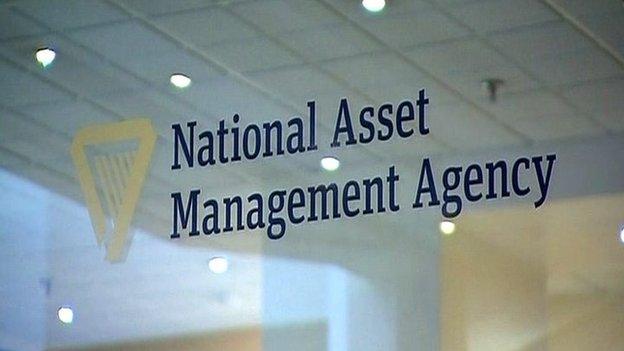Nama deal: A personal question
- Published
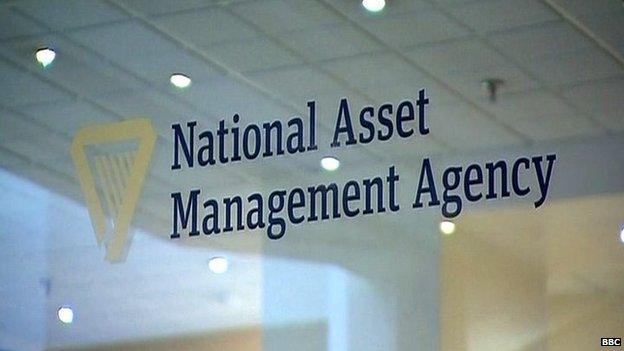
Nama sold its Northern Ireland property portfolio to US investment firm Cerberus last year
Documents released to the BBC by the National Asset Management Agency (Nama) as part of the controversy surrounding the sale of its Northern Ireland property loans portfolio show that the issue of personal loan guarantees was being raised at the highest political levels.
But what are personal loan guarantees and why do they matter?
BBC News NI's economics and business editor John Campbell, external explains.

Personal guarantees were documents signed by property developers making them personally liable for the debts of their companies.
That meant when the property market crashed and the banks were trying to get their money back, they were within their rights to come after the borrowers houses, cars, jewellery and paintings - almost literally the shirts off their backs.
These guarantees were a particular feature of the Irish property boom.
Some banks, particularly Anglo Irish Bank, expected borrowers to put their personal assets on the line when money was being lent to their business.
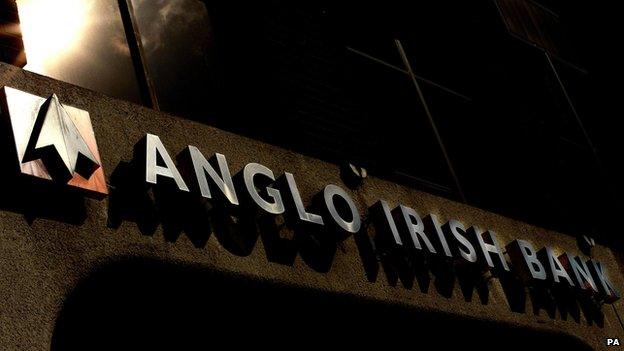
Some Irish banks expected borrowers to put personal assets on the line when money was being lent to their business
In many countries, borrowers are not expected to give such guarantees - banks will reflect the level of perceived risk in the interest rate they charge to the business.
When Nama took over £4bn in Northern Ireland loans made by the Irish banks they also took over the guarantees that had been signed by local developers.
Clearly, that gave them a lot of leverage over borrowers - put crudely, they could say: "Do what we want or you will lose your house."
That was obviously causing angst among developers and those concerns were finding their way to politicians.
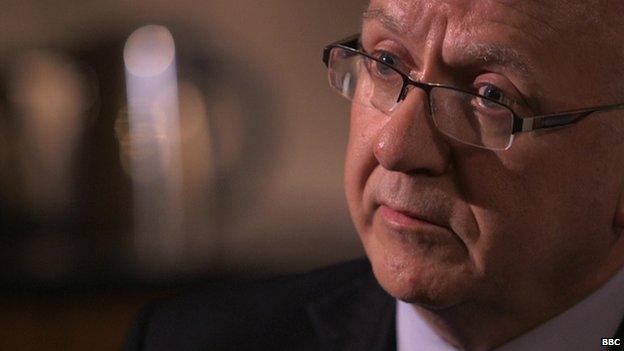
Brian Rowntree said the issue of personal guarantees had a "political sensitivity" in Northern Ireland
At the December 2013 meeting of Nama's Northern Ireland advisory committee, Brian Rowntree, the external member, said that personal guarantees "remain an issue of acute political sensitivity in Northern Ireland".
The minute does not elaborate on why the guarantees are considered politically sensitive.
Forum
Mr Rowntree added that the issue had been raised by the then finance minister Simon Hamilton in a meeting with Nama's chairman in October 2013.
Nama's head of asset recovery Ronnie Hanna told the meeting that personal guarantees were an area of "difficult discussions" with Northern Ireland debtors.
This was not the only forum where personal guarantees were being discussed.

Law firm Brown Rudnick approached Northern Ireland's then finance minister Sammy Wilson on behalf of Pimco in 2013
Earlier in 2013, the international law firm Brown Rudnick was making its first approach on behalf of the Pimco investment fund which wanted to buy the Nama Northern Ireland portfolio.
A Brown Rudnick partner wrote to the then finance minister Sammy Wilson "seeking guidance" before directly engaging with Nama.
In a carefully worded passage, the prospect was raised that the troublesome personal guarantees could be ditched.
It said that if there was "complete cooperation" by borrowers then the guarantees "would be capable of being released".
Gearing
Mr Wilson forwarded the letter to the Irish finance minister Michael Noonan and, in a cover note, highlighted the personal guarantee issue.
He said the guarantees "act as a disincentive to the development of assets" and if they were removed it would "generate economic activity".
Mr Noonan's response was to advise that Brown Rudnick should contact Nama.
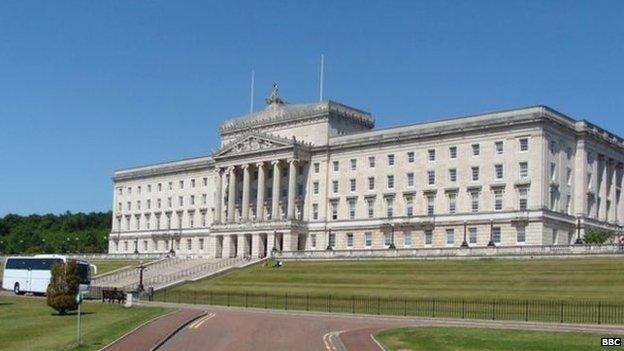
The issue of personal loan guarantees was being raised at the highest political levels in Northern Ireland and in the Republic of Ireland
Fast forward to January 2014 and Nama was gearing up to start the sales process of the Northern Ireland portfolio - what had become known as Project Eagle.
North of the border, the personal guarantee issue was still high on the agenda.
On 17 January, Nama got a letter from a senior official in the first minister's office relating to the Northern Ireland portfolio.
Nama describe the letter as appearing to "summarise an agreement" between Pimco and the Northern Ireland Executive.
Countenanced
Its purpose was to require the buyer of the portfolio to enter into a memorandum of understanding with the executive.
The first item on that memo was the release of "all corporate guarantees and personal guarantees... for nil payment".
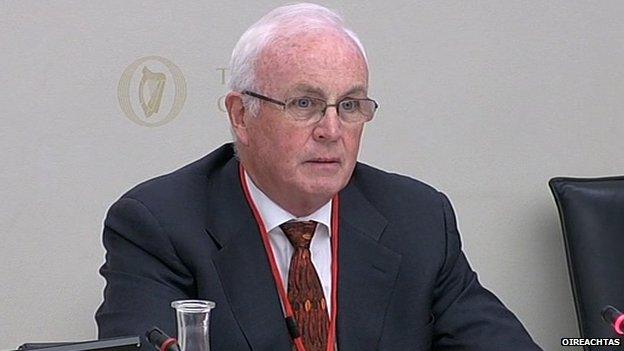
Nama chairman Frank Daly appeared before the Irish parliament to answer questions on Project Eagle
When Nama's chairman Frank Daly was questioned about the memo by the Irish parliament's public accounts committee it was clear he was not impressed.
Mr Daly described it as "a debtors' charter, which we would never have countenanced".
He went further, adding: "There are several conditions in it that would have been unacceptable to us and, in fact, were quite offensive in terms of the way we dealt with debtors and assets."
So, despite all the "acute political sensitivity" the personal guarantees endured, and to this day can be used as leverage by Cerberus, the eventual buyers of the Northern Ireland portfolio.
Cerberus has told Stormont's finance committee that it has enforced one personal guarantee with a value of £200,000.
- Published24 September 2015
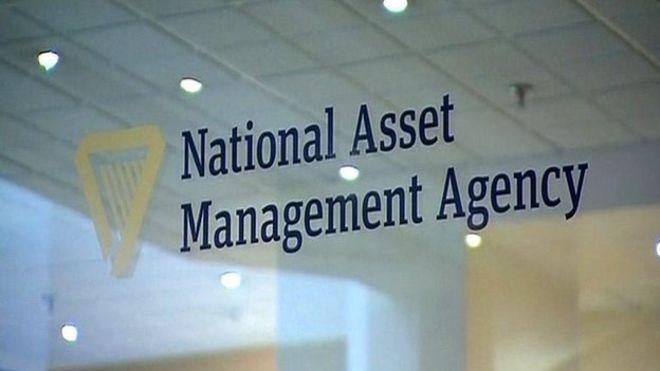
- Published9 July 2015
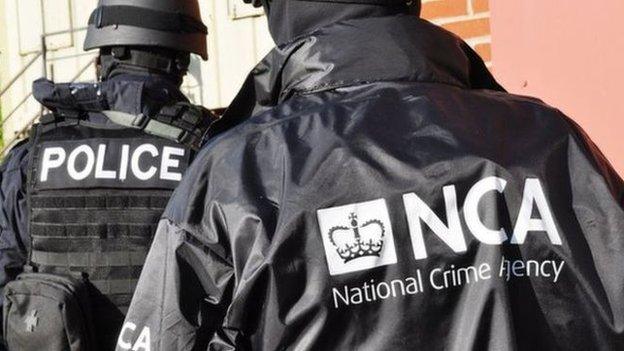
- Published9 July 2015
